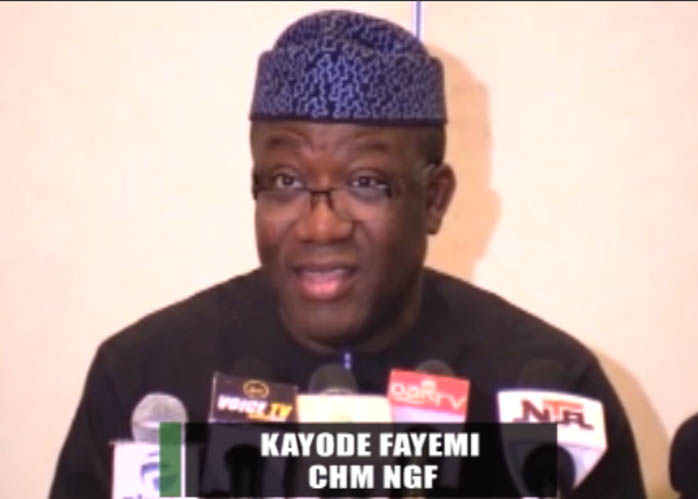This was made known in a statement by NGF head of media and publicity, Abdulrazaque Barkindo.
Led to the NGF Secretariat in Abuja by Steve Haykin, the Country Director of USAID, the group which is currently working on the United States President’s Emergency Plan for AIDS Relief (PEPFAR) project is also seeking political relevance and visibility in the area of HIV prevention so that Rapid Test Kits would be available in a more sustainable manner for the epidemic to reasonably reduce in the country.
If the governors finally sit and agree on the request, testing and the famed combination therapy which has kept people to continue living with HIV/AIDS will be absolutely free.
The strategic approach to diminishing the spread of the epidemic in the country is to identify and bridge the critical gaps so that there are more people receiving treatment than the ones that are dying, according to PEPFAR Coordinator, Mark Giambrone, who spoke on behalf of the group.
On the team were Debra Conner, CDC Deputy Director, Solomon Odafe, also of CDC, Margaret Shelling, and PEPFAR Multilateral Advisor among others.
Using a recent demographic which they said was achieved in a record time of six months, the officials also disclosed, with cautious introspection that, while the successes recorded in the worst affected areas of the country like Benue State do not mean that the scourge has vanished, there is great room for improvement on a national scale if the governors all key in to the project.
According to the demographics, by the end of 2018, Rivers and Akwa Ibom states ranked tops among affected areas, followed by Delta and Lagos in no particular order. But it also expressed optimism that a large number of states in the country are experiencing a shrinking epidemic when it comes to HIV because of the large number of people who are under medication.
What the team wants governors to do is to facilitate the supply of the Rapid Test Kits so as to accommodate more people who receive treatment, as experience has shown that more than 80 per cent of patients are usually domiciled in barely 20 percent of the states.
This, according to the team, has made it easy for them to work towards wiping out the spread of the scourge and, by implication, could also be even easier for governors, in whatever state, to meet their needs easily.
Since its inception in Nigeria in 2004, PEPFAR has disbursed more than 5.1 billion U.S. dollars to support the Nigeria HIV/AIDS response. Some measures of success include about 772,000 men, women and children currently on HIV treatment, in Financial Year 2017 alone.
Regarding its records in Nigeria, PEPFAR website claimed that approximately 7.7 million people have received HIV counseling and testing services and more than 1.6 million pregnant women received HIV testing and counseling toward prevention of mother-to-child transmission of HIV; more than 1.1 million orphans and vulnerable children received care and support services
Equally important, PEPFAR supports Nigeria in the critical areas of Human Capital Development and strengthening health systems.
Before PEPFAR, less than 5,000 Nigerians were on treatment (supported by the Government of Nigeria) in the entire country. Over the past 12 years, PEPFAR has remained responsible for most of the people on HIV treatment in Nigeria.
Although the visitors’ team consisted of USAID, CDC and the Nigeria Army, it is expected that by the time they meet the governors they will also come along with NACA to give the campaign a stronger voice from the government at the federal level.
Source: Premiumtimes

 Three outfits seeking to curb the spread of HIV/AIDS in Nigeria, including USAID, Centre for Disease Control (CDC) in Nigeria and the Department of Defense have sought the buy-in of the 36 Nigerian state governors for the abolition of user fees by all HIV positive persons in the country.
Three outfits seeking to curb the spread of HIV/AIDS in Nigeria, including USAID, Centre for Disease Control (CDC) in Nigeria and the Department of Defense have sought the buy-in of the 36 Nigerian state governors for the abolition of user fees by all HIV positive persons in the country.




